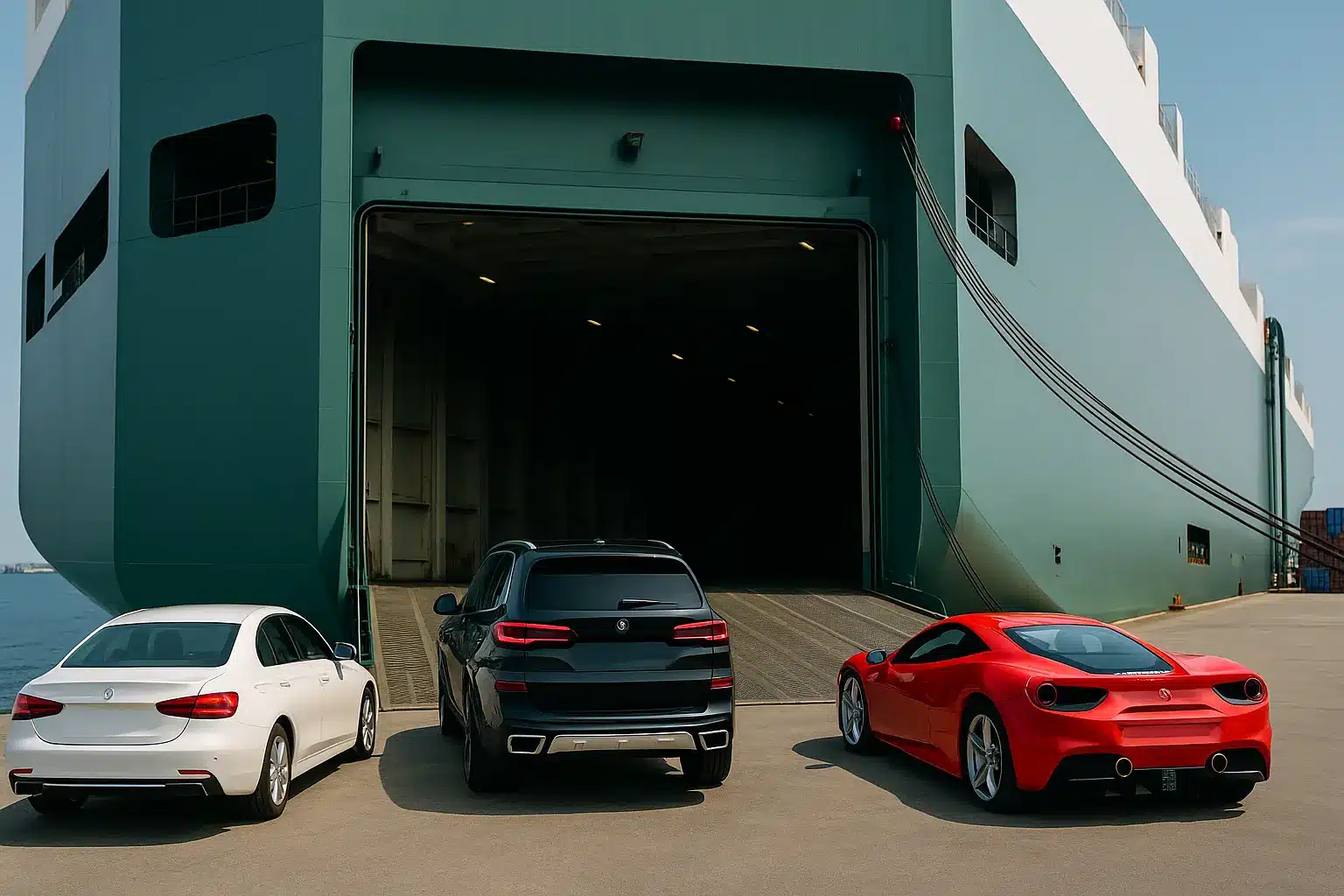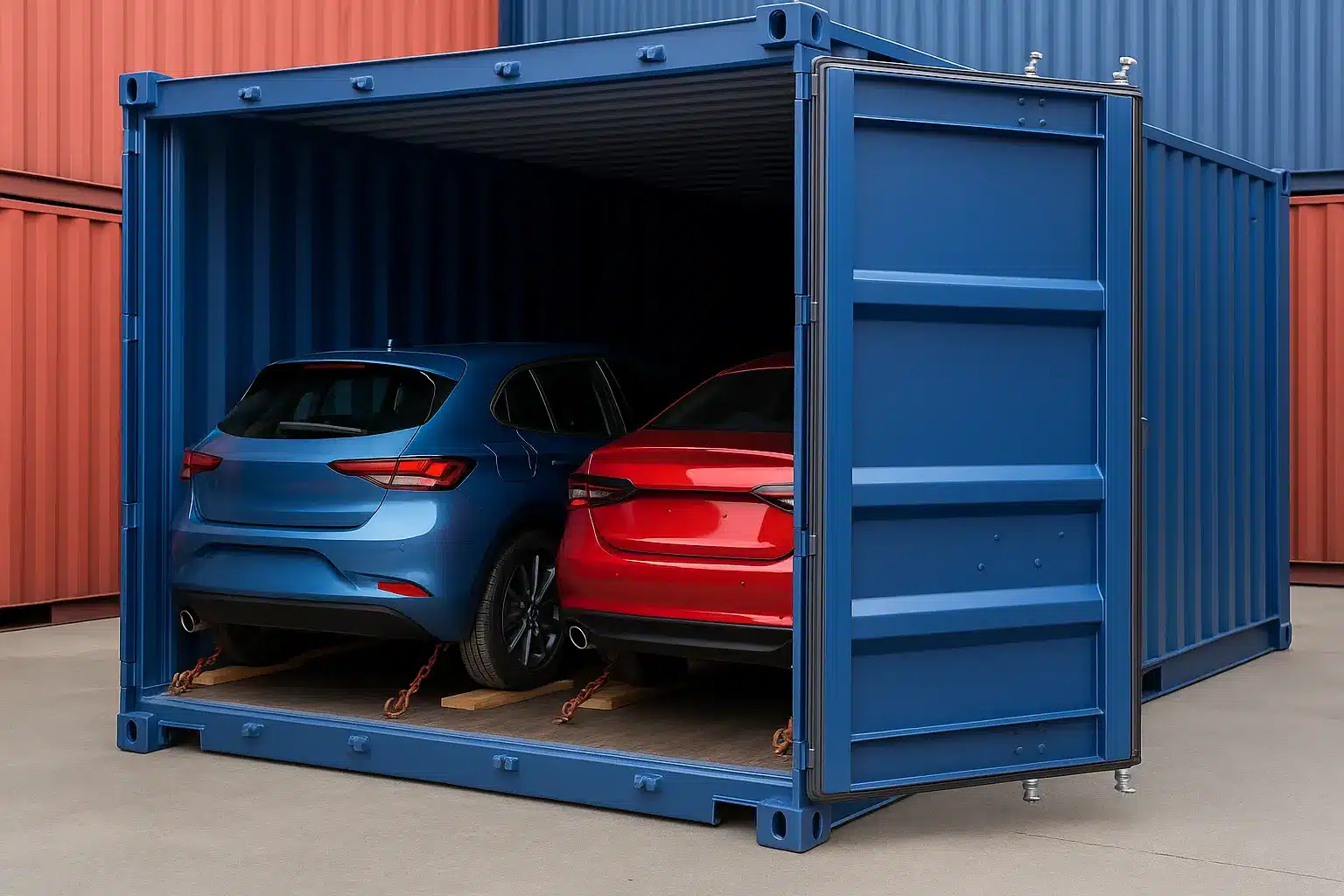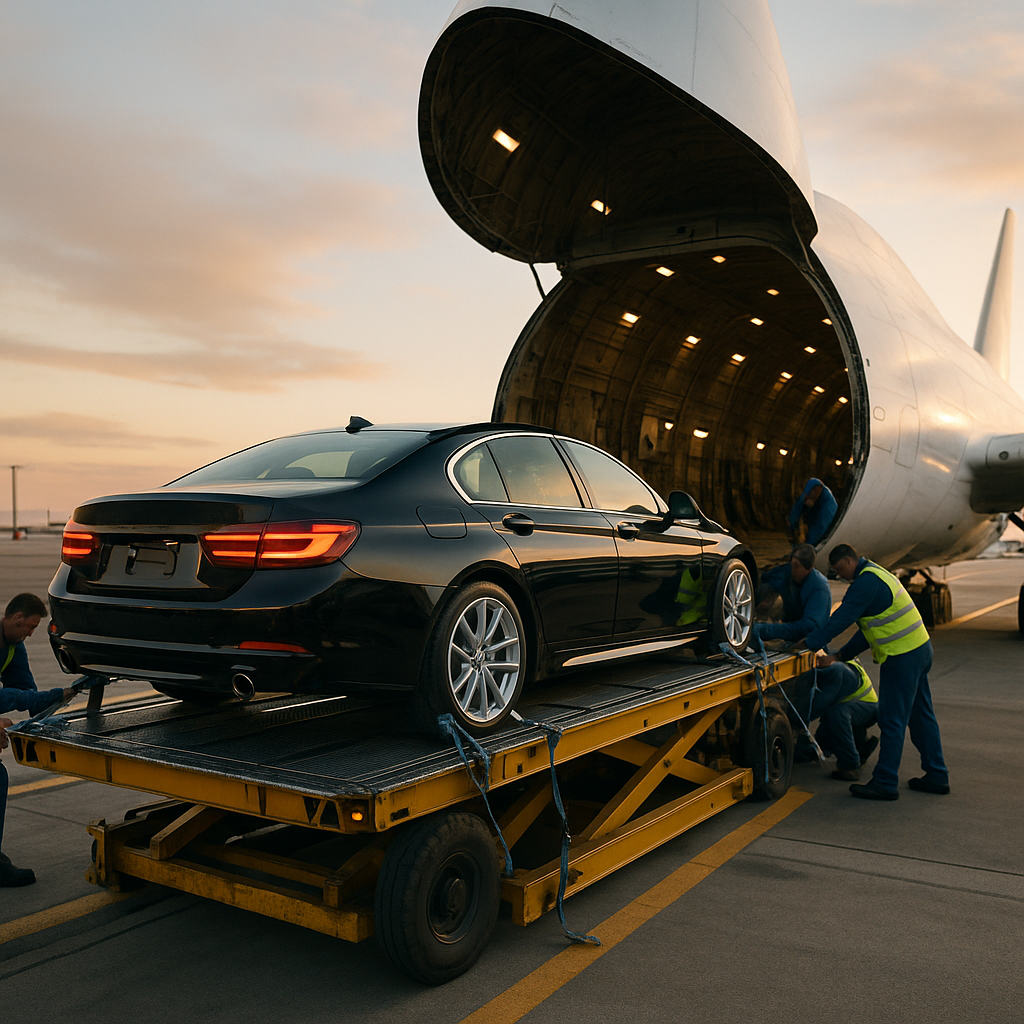Are you looking to ship your car to Brazil with confidence and ease? If so, All Transport Depot Inc., a fully licensed FMC NVOCC (License #021693), manages the entire shipping process from start to finish. As a result, your vehicle is transported safely, securely, and delivered on time.
The cost to ship a car to Brazil typically ranges from $1,500 to $3,500. However, the final price depends on several factors, including vehicle size, shipping method, pickup location, and U.S. departure port. Whether you are shipping one vehicle or multiple cars, we provide transparent pricing and dependable scheduling.
Ready to move forward? FMC Licensed & Bonded NVOCC | Global Shipping Experts
👉 Place your order: https://alltransportdepot.com/place-order/
📞 +1 (678) 528-5794
📧 ship@alltransportdepot.com
Moreover, we specialize in car shipping to Brazil and offer both RoRo (Roll-On/Roll-Off) and container shipping services from major U.S. ports. With competitive rates, reliable sailing schedules, and clear communication, international vehicle shipping to Brazil becomes simple and hassle-free.
💲 Car Shipping Costs & Rates
⚓ Brazil Ports
We provide reliable vehicle delivery services to Brazil. As a result, customers benefit from smooth customs clearance and efficient import processing. Vehicle shipments to Brazil are commonly routed through the following major ports:
- Port of Santos – Brazil’s largest and busiest port for vehicle imports, supporting both RoRo and container shipments. In addition, it offers advanced customs infrastructure and strong inland transport connections.
- Port of Rio de Janeiro – A key port serving southeastern Brazil. Likewise, it provides reliable handling for RoRo and containerized vehicles.
- Port of Paranaguá – A strategic port for southern Brazil, offering efficient cargo handling and reduced inland transit times.
Ultimately, our logistics team selects the most suitable Brazilian port based on routing, cost, and final delivery location.
📑 Documents
Shipping a car requires essential documents such as the original title, identification, and purchase invoice. Our team assists you in preparing all necessary paperwork to ensure smooth processing at the port.- Original vehicle title
- Government-issued ID
- Bill of sale/purchase invoice
📑 Import Rules (Brazil)
We guide you through Brazil’s strict customs regulations, port requirements, and import duties. Therefore, proper preparation is essential to ensure a compliant shipment.
Key import rules include:
- Used vehicle imports are highly restricted and typically limited to diplomats, returning residents, or special approvals
- Import duties and taxes are calculated based on CIF (Cost, Insurance, and Freight) value
- Additional taxes such as IPI, ICMS, and PIS/COFINS may apply
- Customs clearance must be completed through a licensed Brazilian customs broker
In addition, our team assists with documentation and compliance checks to help avoid delays and unexpected costs.
🧰 How to Prepare Your Car
Preparing your car includes a simple checklist: remove personal items, reduce fuel levels, and document the vehicle’s condition. Following these steps helps avoid delays and ensures your car is ready for safe loading and transport.- Remove personal belongings (shipping of cars excludes personal effects unless in a container)
- Leave less than ¼ fuel tank
- Provide export docs
- Inspect and photograph the vehicle
✅ Why Choose All TransportDepot?
When you ship car with All TransportDepot, you benefit from:
-
FMC Licensed & Bonded NVOCC (#021693)
-
20+ years of international car shipping experience
-
Nationwide U.S. pickup from all major cities
-
Affordable, competitive rates with no hidden fees
-
Full insurance options for peace of mind
-
Expert support with documentation and customs compliance
👉 We ensure your vehicle arrives safely and on schedule.
👉 Get a Free Quote | 👉 Book Your Shipment
Shipping an Electric Car from the USA
❓ Frequently Asked Questions – Car Shipping to Brazil
How much does it cost to ship a car to Brazil from the USA?
Shipping a car to Brazil typically costs between $1,500 and $3,500. However, pricing depends on vehicle size, shipping method (RoRo or container), pickup location, and the U.S. departure port. For example, larger or luxury vehicles may cost more.
What is the cheapest way to ship a car to Brazil?
When permitted, RoRo shipping is generally the most affordable option for running vehicles. However, due to Brazil’s import restrictions, container shipping is often required.
How long does it take to ship a car to Brazil?
On average, transit time from the USA to Brazil ranges from 4 to 7 weeks. That said, customs clearance and import approvals can extend delivery timelines.
What are Brazil’s car import rules and restrictions?
In summary, Brazil enforces strict vehicle import regulations.
Authorities heavily restrict or prohibit used vehicle imports without special approval,
assess import duties and multiple taxes based on the CIF value,
and require a licensed broker to handle customs clearance. Most importantly, importers must secure approval before shipment.
🚢 Ship Worldwide with a Licensed U.S. Freight Forwarder
Cars • Containers • Heavy Equipment • RoRo • Air Freight
👉 Place Your Order:
https://alltransportdepot.com/place-order/
📞 Call: +1 (678) 528-5794
📧 Email: ship@alltransportdepot.com
All TransportDepot Inc.
FMC Licensed & Bonded NVOCC #021693
Should I choose RoRo or Container shipping?
- RoRo Shipping – Lower cost, suitable only when permitted
- Container Shipping – Required in most cases and ideal for compliance, high-value, or non-running vehicles
Ultimately, our team helps you determine the best option based on eligibility and vehicle type.
Can you ship non-running or damaged vehicles to Brazil?
Yes. In this case, we ship non-running or damaged vehicles using container service. When required, our team uses special loading equipment to ensure safe handling.
Do you offer inland pickup in the USA?
Yes. In addition, we provide nationwide door-to-port pickup, including vehicles from homes, dealerships, and major auctions such as Copart, IAAI, and Manheim.
How do I get a free quote for car shipping to Brazil?
Simply use our online rate calculator or contact our team directly. Once you provide your vehicle details, we will send a fast, transparent quote along with eligibility guidance.
2025’s Most Popular Imported Vehicles: Top Models
✈️ Get a Free Quote Today
Ready to ship your vehicle by air? Here’s what we’ll need to get started:
📧 Email: ship@alltransportdepot.com
📲 WhatsApp: +1 (470) 791-4497
📞 Phone: +1 (678) 528-5794
At All TransportDepot Inc., we ensure premium service for safe, secure, and reliable car air shipping worldwide.
👉 Don’t wait—Get Your Free Quote Now

Maria is the operations manager at SoCal Auto Movers, where she oversees the daily operations of their car shipping services. Her efficiency and problem-solving skills ensure that each shipment, whether local or long-distance, goes off without a hitch.



